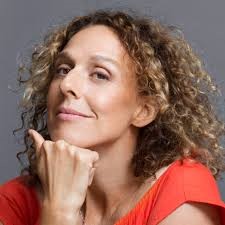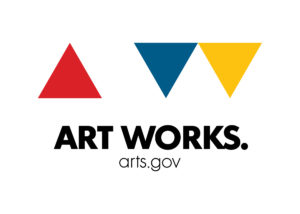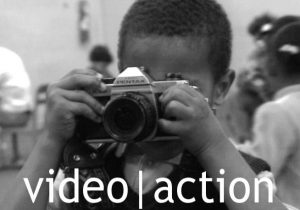By Flo Dwek
ONE OF US
(Directed by Rachel Grady and Heidi Ewing, 2017, 1 hr., 35 min.)
ONE OF US, the thrilling new documentary by the talented directing duo, Rachel Grady and Heidi Ewing, is now streaming on Netflix in an unbelievable 190  countries, in 30 languages. This is indeed a remarkable feat, defying the odds of being billed as something of a “niche” film about the pain and suffering of three Hasidic Jews who opt out of the cloistered world of Hasidism in Brooklyn, New York. Simply put, its prevailing themes of revolt, resistance and recrimination are universal in their appeal. It is virtually impossible to watch this deftly made piece of cinema verite without being amazed and moved by the harrowing stories of the three young people at its heart. We cannot help but root for Etty, Ari and Luzer as they struggle to free themselves from a lifelong captivity of rigid norms, beliefs and behaviors. After devoting so many years to chronicling their arduous tales, the filmmakers see it this way: “These three brave people are bucking the exacting rules of their ultra-orthodox community to experience the world for the first time as true individuals. Their journey is a profoundly human one that took us by surprise.” For a penetrating look at several aspects of this complex film, don’t miss WIFV’s interview, below, with Rachel Grady.
countries, in 30 languages. This is indeed a remarkable feat, defying the odds of being billed as something of a “niche” film about the pain and suffering of three Hasidic Jews who opt out of the cloistered world of Hasidism in Brooklyn, New York. Simply put, its prevailing themes of revolt, resistance and recrimination are universal in their appeal. It is virtually impossible to watch this deftly made piece of cinema verite without being amazed and moved by the harrowing stories of the three young people at its heart. We cannot help but root for Etty, Ari and Luzer as they struggle to free themselves from a lifelong captivity of rigid norms, beliefs and behaviors. After devoting so many years to chronicling their arduous tales, the filmmakers see it this way: “These three brave people are bucking the exacting rules of their ultra-orthodox community to experience the world for the first time as true individuals. Their journey is a profoundly human one that took us by surprise.” For a penetrating look at several aspects of this complex film, don’t miss WIFV’s interview, below, with Rachel Grady.
A CONVERSATION WITH FILMMAKER RACHEL GRADY
BY FLO DWEK
 WIFV: You and Heidi Ewing chose to make a film, essentially, about three Hasidic “outcasts,” individuals who could no longer tolerate being in the Hasidic community for many complex personal reasons, including physical and mental abuse, cultural and educational deprivation and a forced alienation from the real world. What type of film did you set out to make originally about the Hasidim in Brooklyn, and how did it morph into this film about the difficult journeysONE of these three unhappy souls?
WIFV: You and Heidi Ewing chose to make a film, essentially, about three Hasidic “outcasts,” individuals who could no longer tolerate being in the Hasidic community for many complex personal reasons, including physical and mental abuse, cultural and educational deprivation and a forced alienation from the real world. What type of film did you set out to make originally about the Hasidim in Brooklyn, and how did it morph into this film about the difficult journeysONE of these three unhappy souls?
GRADY: Heidi and I always wanted to explore the world of Hasidim but never thought we would have some sort of special access to do that. When we learned about the organization called Footsteps (which aids Hasidic Jews to transition into secular life) we thought they offered the possibility of getting into it from a certain angle. We finally got permission from Footsteps to meet their clients after waiting 6 months — and from that point on, we met many people going through this extremely fraught transition. After we met our three main subjects, we knew we had a film.
WIFV: What would you most like audiences to remember and think about after seeing this film?
GRADY: That there is a cost we all pay for our individualism — and in some cases, people give up absolutely everything for it. This film, at its heart, is about personal identity and its value.
WIFV: What were your greatest challenges in making this documentary and how long did it take, start to finish?
GRADY: The project took about three years from start to finish. Access was our biggest challenge. The Hasidic community is absolutely allergic to cameras, and filming them was a challenge all the way through the process. It took us 2 years to get a community elder to go on camera and meet with one of our subjects; and he only agreed because he is personally more open minded than most of his community. It was an uphill battle.
WIFV: Did you feel that you and your subjects were ever in peril, as you and Heidi filmed Hasidim in both public and private places?
GRADY: We personally never felt physically in danger. Our subject, Etty, however, was threatened, and was in a hit-and-run bike accident while we were filming that was never solved and was very creepy. We were worried for her safety many times.
WIFV: How did your understanding of this insular society, with its complex laws, customs and morals change and evolve during the time you made this film?
GRADY: We learned so much along the way in making this film. It also became apparent that outsiders such as ourselves were never ever going to truly understand the incredibly nuanced, complex and arcane customs and culture of this community. The more we learned, the more it was clear there was much more to learn. We found it endlessly fascinating, and there could be 10 more films on the subject.
WIFV: As a Jewish woman, do you feel your identity underwent any noticeable changes during the making of this film? And, did your sense of “Jewishness” help or hinder your ability to better understand and depict the Hasidim and the individuals who sought to leave the fold?
GRADY: I think being a Jew was absolutely significant to my process as a filmmaker. It felt more personal and made me think about my role in world Jewry. I don’t think making this film made me more “religious” per se, but it definitely made me more sensitive to the tribalism that we are all connected to as humans.
WIFV: To the best of your knowledge (aside from the three people whose lives you follow in this film), have any other Hasidic individuals actually watched this documentary? Has there been any response or outcry from the Brooklyn Hasidic community?
GRADY: All we get are whispers and rumors with regard to the Hasidic community’s reaction to the film. We have gotten a few anonymous emails that thank us for showing the truth and being respectful. I think, sadly, we will never truly know what kind of impact the film has on the Brooklyn community of Hasidim.
WIFV: What would you have done differently, knowing what you know now?
GRADY: There isn’t anything I would second guess. I feel the film feels very complete and I’m so grateful to my subjects for their raw honesty and courage.
WIFV: At the present time, where can we view ONE OF US?
GRADY: On Netflix! It’s In 190 countries, in 30 languages.
WIFV: What’s next for Rachel and Heidi? Can you give us a sneak peek at your next project?
GRADY: We are developing a feature film on a musician and a true crime series. No sneak peeks yet, but we are working hard to make more films!
WIFV: The best of luck to you both, and thank you for your time and efforts on behalf of WIFV-DC.
GRADY: You are very welcome!
ONE OF US photo courtesy of Netflix.
Photo of Rachel Grady by Charlie Gross.
















